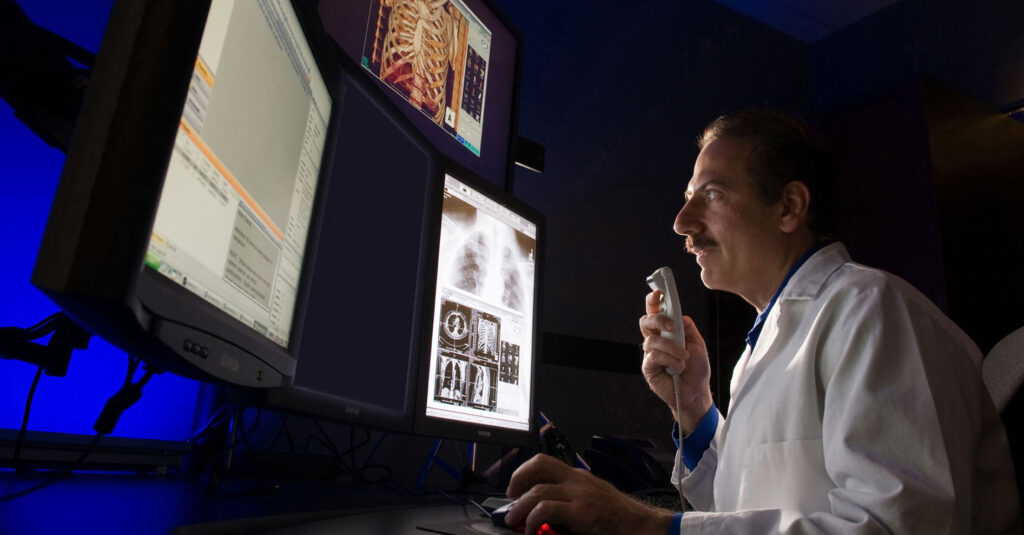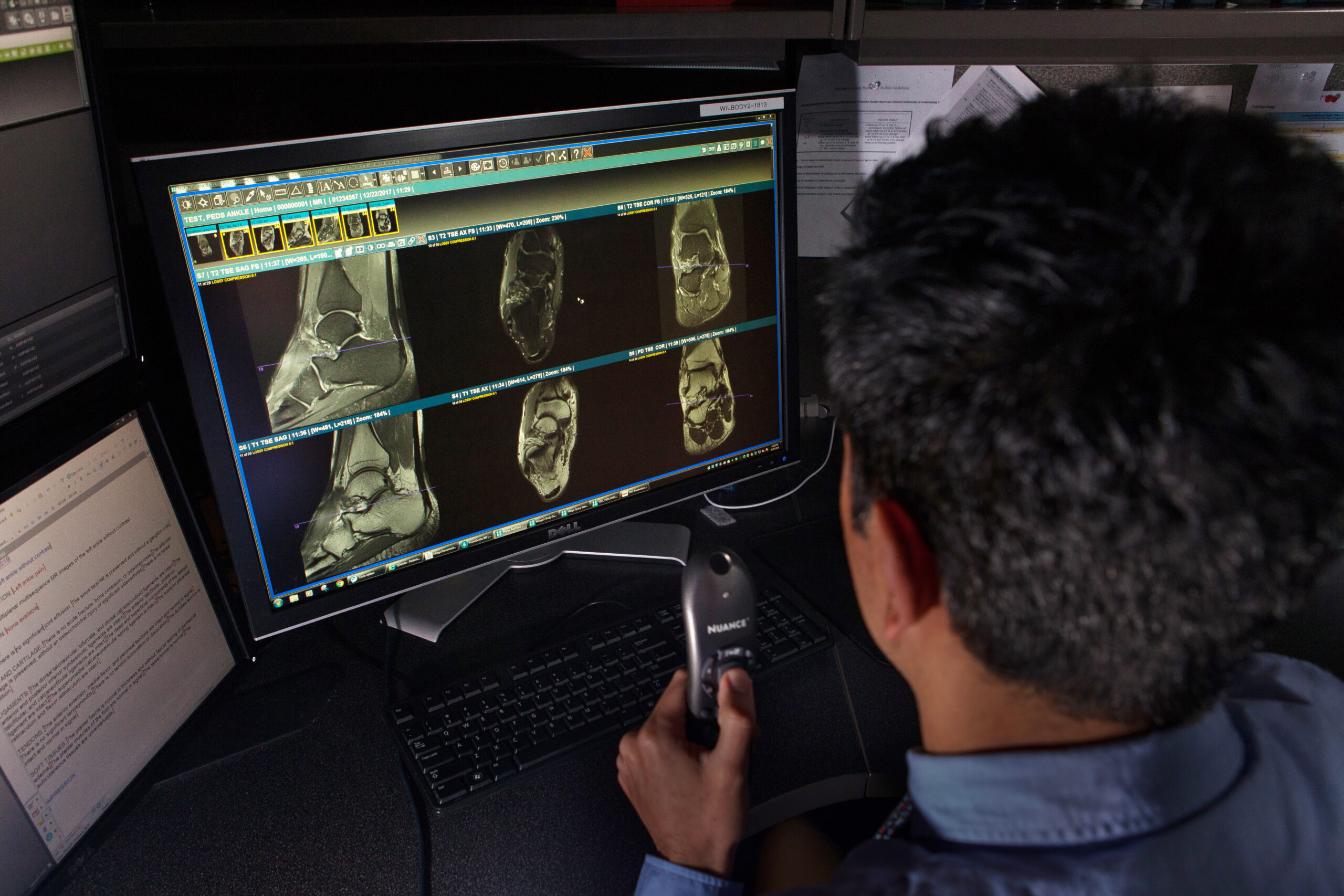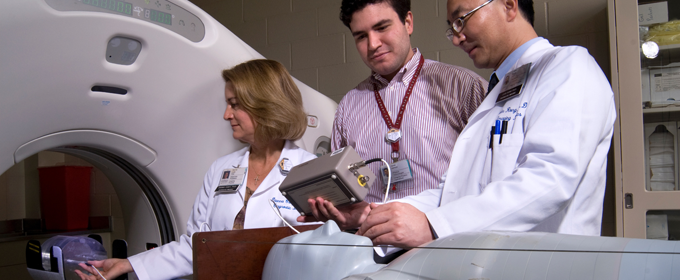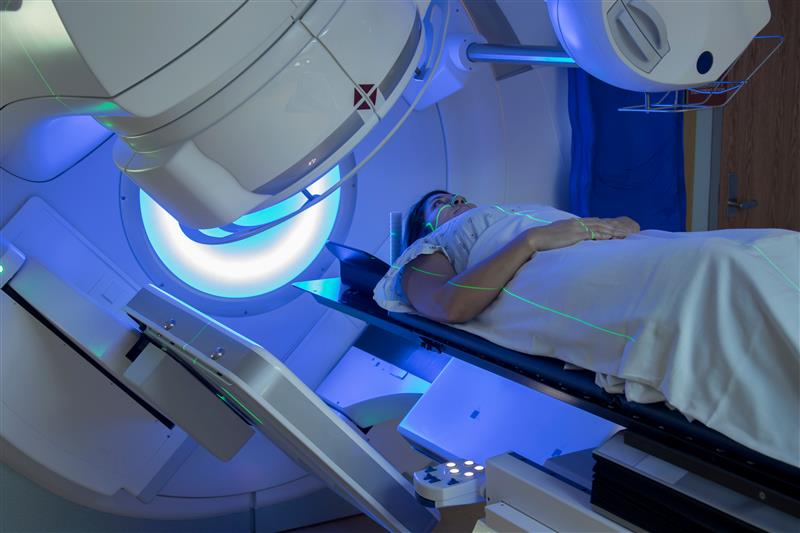Alternate Pathways to Certification
The ABR offers alternate pathways to certification, including for international medical graduates (IMGs), international medical physics graduates (IMPGs), and the Holman Research Pathway. Learn more.
-
The ABR offers alternate pathways to certification across all disciplines—Diagnostic Radiology (DR), Interventional Radiology/Diagnostic Radiology (IR/DR), Medical Physics (MP), and Radiation Oncology (RO). These include the International Medical Graduate (IMG) Alternate Pathway, the International Medical Physics Graduate (IMPG) Alternate Pathway, and the Holman Research Pathway. Read on to explore prerequisites, eligibility requirements, and other details for each pathway.
DR IMG Alternate Pathway
You can become certified in diagnostic radiology (DR) through the International Medical Graduate (IMG) Alternate Pathway or the Holman Research Pathway.

IMG Alternate Pathway
If you’re an international medical graduate and you’re not planning to enter the standard residency pathway to certification in DR, you can apply to this alternate pathway with the ABR.
Prerequisites
- Complete training requirements in a non-U.S., non-Canadian country and provide documentation with start and end dates. Training must include:
- One year of clinical training
- A minimum of three years of DR training in a residency program
- Provide documentation verifying your ability to practice radiology independently in the country where you were trained or board certified (if applicable).
- If you were trained in India, you don’t need to provide proof of board certification. You’ll need to hold an MBBS+DNB and/or MD degree, as India does not issue “certification” from a national organization.
- If you completed training outside of India, you’ll need to provide documentation of your certification and the duration of your residency.
We cannot accept transcripts as proof of documentation.
Eligibility Requirements
- Complete four years of radiology training within eight years of your training start date. Training may be completed as a residency (three years maximum — four years is the standard pathway), fellowship, and/or faculty appointment in an institution with a DR training program accredited by the Accreditation Council for Graduate Medical Education (ACGME) or Royal College of Physicians and Surgeons of Canada (RCPSC).
- It is preferred that all four years of training take place at one institution. If this is not possible, you can apply for a transfer to another program. See the transfers section below for details.
- You can complete your training part-time (≥ 0.5 FTE), as long as you complete the equivalent of four years of full-time training within eight years of your training start date.
- Pass the DR Qualifying (Core) and Certifying exams.
- Provide proof of a valid, unrestricted medical license in the U.S. or Canada. If you’re in training, a training license will work.
- Uphold fundamental moral and ethical principles and exhibit professional behavior throughout the certification process.
Transfers
It’s preferred that all four years of training take place at one institution. If you transfer to a new institution during your training, you can still meet the four-year training requirement — but there are a few important things to keep in mind.
- To ensure you receive the maximum possible training credit, submit your transfer documentation and Sponsoring Department Agreement(s) as early as possible. The ABR can grant up to 24 months of retrospective credit.
- A maximum of two institutions can be used to complete the required four years of training.
- If you plan to take the Qualifying (Core) Exam at the earliest opportunity (after 36 months of training), make sure the ABR receives your transfer documentation and new Sponsoring Department Agreement(s) no later than six months into your third year.
- If you don’t apply until you’re already at the second program, the ABR can award up to 24 months of retrospective credit from the date your application is submitted.
- You’ll need to complete at least 24 months of training at the institution where you finish, even if this extends your total training beyond four years.
Application Process
To apply for the DR IMG Alternate Pathway, you must submit:
- The Diagnostic Radiology (DR) IMG Application Form
- A current CV with specific dates for all training
- Verification of training and certification, as listed below (Copies of diplomas or official letters from training institutions are accepted as verification. If the original documents are in a language other than English, an English translation must be included.)
- Medical school training
- Clinical training
- Radiology residency training
- Radiology certification (if applicable)
- A copy of your Educational Commission for Foreign Medical Graduates (ECFMG) certificate or Licentiate of the Medical Council of Canada (LMCC) certificate
- Sponsoring Department Agreement (SDA) with a prospective four-year training plan:
- Up to two years of retrospective training is allowed.
- The ABR may approve research for the Alternate Pathway program, but you must submit details for review.
- Up to 12 months of research may count toward certification if it is completed in the programs included in the approved SDAs.
- Any changes to the requirements listed above must receive written approval from the ABR. Changes made without prior consent may result in termination of your participation in the Alternate Pathway.
- United States Medical Licensing Exam (USMLE) requirements:
- Steps 1 and 2 score reports
- Step 3 (required at least six months before you take the Certifying Exam)
- A copy of your current, unrestricted medical license
- Your application fee, when requested from the ABR
DR Holman Research Pathway
The Holman Research Pathway is designed for outstanding DR trainees with strong clinical skills and a background in research. If you’re committed to a career in basic science or clinical research, this pathway lets you focus on research while completing your clinical training.
Training Requirements
PGY-1: Clinical Experience
- At least nine months of direct patient care in an ACGME- or RCPSC-accredited training program in internal medicine, pediatrics, surgery or surgical subspecialties, OB-GYN, neurology, family practice, emergency medicine, or any combination of these.
Radiology Residency Training (R1-R4)
- Twenty-seven months of full-time clinical training in diagnostic radiology, which can include three months in PGY-1, are required.
- You must meet the same requirements as in an ACGME-or RCPSC-accredited program in diagnostic radiology, including the minimum requirements for clinical rotations in breast imaging (three months) and nuclear radiology (four months).
Your program director oversees your clinical training and submits an annual progress report.
Research Training/Experience and Clinical Training during Research
- Twelve to 21 months of dedicated research time are required.
- At least 20% of research time must be dedicated to clinical training.
- You may use up to three months of your PGY-1 for research, for a maximum of 23 months.
- You must meet the clinical training 27-month minimum to be eligible for certification. Any time lost due to leave should not be taken disproportionally from clinical rotations.
A research mentor will assess your research progress and submit an annual evaluation.
This research mentor must be an experienced researcher with peer-reviewed funding. They can be your program director or another qualified faculty member.
Application Process
DR trainees can apply any time after six months of R1 or during R2, but not in R3. You can complete your research any time before the end of your residency.
When submitting your application, include:
- A research proposal (5 pages maximum) outlining your goals and research plan
- A letter from your department chair confirming your ability to achieve clinical competence during the abbreviated timeframe and guaranteeing research support
- A commitment letter from your research mentor confirming they’ll guide and supervise your work (If your mentor is not the program director, a letter of support from the program director is also required.)
- A letter from your medical school dean
- Your USMLE Step 1, 2, and 3 scores
To show us you’re a strong applicant, it also helps to have:
- A history of participating in clinical or basic research
- Publications or patents
- A graduate degree (PhD, MPH, etc.)
- Conference presentations
- Honors or awards
At least three reviewers will review your application, and you’ll receive a decision about eight weeks after submission.
Applications are reviewed three times a year; make sure you submit yours by March 15, July 15, or November 15. Visit the diagnostic radiology certification fee page for more information about application and exam fees.
- Complete training requirements in a non-U.S., non-Canadian country and provide documentation with start and end dates. Training must include:
-
IR/DR IMG Alternate Pathway
You can become certified in interventional radiology/diagnostic radiology (IR/DR) through the standard International Medical Graduate (IMG) Alternate Pathway or the Two-Year IR/DR IMG Alternate Pathway.

IMG Alternate Pathway
If you’re an international medical graduate and you’re not planning to enter the standard residency pathway to certification in IR/DR, you can apply to this alternate pathway with the ABR.
Prerequisites
- Complete training requirements in a non-U.S., non-Canadian country and provide documentation with start and end dates. Training must include:
- One year of clinical training
- A minimum of three years in a DR residency program and, in addition, a minimum of one year in a dedicated subspecialty IR training program
- Provide documentation verifying your ability to practice interventional radiology independently in the country in which you were trained, certification by the European Board of Interventional Radiology (EBIR), or board certified (if applicable).
- If you were trained in India, you don’t need to provide proof of board certification. You’ll need to hold an MBBS+DNB and/or MD degree, as India does not issue “certification” from a national organization.
- If you completed training outside of India, you’ll need to provide documentation of your certification and the duration of your residency.
We cannot accept transcripts as proof of documentation.
Eligibility Requirements
- Complete five years of training within 10 years of your training start date. Training may be completed as a combination of residency (four years maximum — five years is the standard pathway), fellowship, and/or faculty appointment in an institution with an IR training program accredited by the Accreditation Council for Graduate Medical Education (ACGME).
- It is preferred that all five years of training take place at one institution. If this is not possible, you can apply for a transfer to another program. See the transfers section below for details.
- You can complete your training part-time (≥ 0.5 FTE), as long as you complete the equivalent of five years of full-time training within 10 years of your training start date.
- Pass the IR/DR Qualifying (Core) and Certifying exams.
- Provide proof of a valid, unrestricted medical license in the U.S. or Canada. If you’re in training, a training license will work.
- Uphold fundamental moral and ethical principles and exhibit professional behavior throughout the certification process.
Transfers
It is preferred that all five years of training take place at one institution. If you transfer to a new institution during your training, you can still meet the five-year training requirement — but there are a few important things to keep in mind.
- To ensure you receive the maximum possible training credit, submit your transfer documentation and Sponsoring Department Agreement(s) as early as possible. The ABR can grant up to 36 months of transferred credit.
- A maximum of two institutions can be used to complete the required five years of training.
- If you plan to take the Qualifying (Core) Exam at the earliest opportunity (after 36 months of training), make sure the ABR receives your transfer documentation and new Sponsoring Department Agreement(s) no later than six months into your third year.
- If you don’t apply until you’re already at the second program, the ABR can award up to 24 months of retrospective credit from the date your application is submitted.
- You’ll need to complete at least 24 months of training at the institution where you finish, even if this extends your total training beyond five years.
Application Process
To apply for the IR/DR IMG Alternate Pathway, you must submit:
- The Interventional Radiology/Diagnostic Radiology (IR/DR) IMG Application Form
- A current CV with specific dates for all training.
- Verification of training and certification, as listed below (Copies of diplomas or official letters from training institutions are accepted as verification. If the original documents are in a language other than English, an English translation must be included.)
- Medical school training
- Clinical training
- Radiology residency training
- Interventional radiology certification (if applicable)
- A copy of your Educational Commission for Foreign Medical Graduates (ECFMG) certificate or Licentiate of the Medical Council of Canada (LMCC) certificate
- Sponsoring Department Agreement (SDA) with a prospective five-year training plan:
- Up to two years of retrospective training is allowed.
- The ABR may approve research for the Alternate Pathway program, but you must submit details for review.
- Up to 12 months of research may count toward certification if it is completed in the programs included in the approved SDAs.
- Any changes to the requirements listed above must receive written approval from the ABR. Changes made without prior consent may result in termination of your participation in the Alternate Pathway.
- United States Medical Licensing Exam (USMLE) requirements:
- Steps 1 and 2 score reports
- Step 3 (required at least six months before you take the Certifying Exam)
- A copy of your current, unrestricted medical license
- Your application fee, when requested from the ABR
Two-Year IR/DR IMG Alternate Pathway
If you’ve already completed the DR IMG Alternate Pathway and are eligible for DR certification, you may qualify for the two-year pathway to become certified IR/DR.
Prerequisites
- Complete training requirements in a non-U.S., non-Canadian country and provide documentation with start and end dates. Training must include:
- One year of clinical training
- A minimum of three years in a DR residency program and, in addition, a minimum of one year in a dedicated subspecialty IR training program
- Provide documentation verifying your ability to practice interventional radiology independently in the country where you were trained, certification by the European Board of Interventional Radiology (EBIR), or board certified (if applicable).
- If you were trained in India, proof of board certification is not required. You’ll need to hold an MBBS+DNB and/or MD degree, as India does not issue “certification” from a national organization.
- If you completed training outside of India, you’ll need to provide documentation of your certification and the duration of your residency.
- Complete the DR IMG Alternate Pathway.
Eligibility Requirements
- Complete a two-year IR training alternate pathway within four years from the start date at a single institution with an ACGME-approved IR training program. This training:
- Must go beyond any IR training you completed during the DR IMG pathway
- Can consist of two years of IR faculty service or a combination of IR faculty service and up to one year of IR residency
- May include up to one year of retroactive IR experience immediately preceding the date of the application toward the two-year requirement
- Can be part-time (≥ 0.5 FTE), as long as it adds up to the equivalent of two full years
- Pass the oral component of the IR/DR Certifying Exam.
- Provide proof of a valid, unrestricted medical license in the U.S. or Canada. If you’re in training, a training license will work.
- Uphold fundamental moral and ethical principles and exhibit professional behavior throughout the certification process.
Application Process
To apply for the Two-Year IR/DR IMG Alternate Pathway, you must submit:
- The Two-Year IR/DR IMG Application Form (Email Information@theabr.org to request this form.)
- A current CV with specific dates for all training
- Verification of training and certification, as listed below (Copies of diplomas or official letters from training institutions are accepted as verification. If the original documents are in a language other than English, an English translation must be included.)
- Medical school training
- Clinical training
- Radiology residency training
- Interventional radiology certification (if applicable)
- A copy of your Educational Commission for Foreign Medical Graduates (ECFMG) certificate or Licentiate of the Medical Council of Canada (LMCC) certificate
- Sponsoring Department Agreement (SDA) with a prospective two-year training plan:
- Up to one year of retrospective training is allowed.
- Any changes to the requirements listed above must receive written approval from the ABR. Changes made without prior consent may result in termination of your participation in the Alternate Pathway.
- Your application fee, when requested from the ABR
- Complete training requirements in a non-U.S., non-Canadian country and provide documentation with start and end dates. Training must include:
-
MP IMPG Alternate Pathway
You can become certified in medical physics in the International Medical Physics Graduate (IMPG) Structured Mentorship Program Pathway.

IMPG Structured Mentorship Program Pathway
If you’re an international medical physics graduate and you’re not planning to enter the standard residency pathway to certification in MP, you can apply to this alternate pathway with the ABR.
Prerequisites
- Complete training in a non-U.S., non-Canadian country.
- Provide transcripts showing that you’ve completed the equivalent of a master’s degree in medical physics from a CAMPEP-accredited program.
- Provide documentation verifying your ability to practice medical physics independently in your country. (This might be certification, registration, or a similar credential.)
- Provide documentation of at least one year of clinical employment as a medical physicist in your country.
Eligibility Requirements
- Secure a clinical training site in the U.S. that has a CAMPEP-accredited residency program, and a supervisor who is an ABR-certified medical physicist.
- Be employed in the U.S. as a medical physicist. A junior physicist or medical physics assistant position is acceptable.
- Complete three years of clinical training within six years of your training start date (preferably in one institution). If you can’t complete your training in one institution, you can apply for a transfer to another program. See the transfers section below for details.
Transfers
It’s preferred that all three years of training take place at one institution. If you transfer to a new institution during your training, you can still meet the three-year training requirement — but there are a few important things to keep in mind.
- To ensure you receive the maximum possible training credit, submit your transfer documentation and Sponsoring Department Agreement(s) as early as possible.
- A maximum of two institutions can be used to complete the required three years of training.
- You’ll need to complete at least 24 months of training at the institution where you finish, even if this extends your total training beyond three years.
Training Expectations
During your mentorship, you’ll complete structured rotations in different areas of medical physics, working with specialized equipment and interacting independently with attending physicians, gaining practical, real-world experience in:
- Diagnostic medical physics – Imaging protocols, quality assurance (QA), patient dosimetry, shielding design, and hands-on work with CT, MRI, ultrasound, mammography, and interventional radiology
- Nuclear medical physics – Imaging techniques, radionuclide therapy, radiopharmaceuticals, radiation safety, and working with PET/CT, SPECT, and nuclear pharmacies
- Therapeutic medical physics – Radiation therapy simulation, treatment planning, machine QA, patient dosimetry, and specialized radiation oncology procedures
Some facilities may not have all the required equipment on-site. In this case, the program will arrange supervised training at another institution.
Your training must address the six ABMS/ABR competencies:
-
- Medical knowledge
- Patient care and procedural skills
- Interpersonal and communication skills
- Professionalism
- Practice-based learning and improvement
- Systems-based practice
Up to six months of your mentorship can be dedicated to research, depending on your interests and career goals.
You must provide your supervisor with an annual progress statement. Your supervisor must attest that you meet all six competencies before training is considered complete.
You must also maintain a portfolio documenting your training, which needs to include:
-
- Rotation plans and educational materials
- Activity summaries and survey reports
- Self-directed educational projects (SDEPs)
- Practice quality improvement (PQI) project
- Three-page summaries of each rotation
- Evaluations by your advisor and supervising physicians
Note: Portfolios may be audited by the ABR.
Application Process
To apply for the MP IMPG Alternate Pathway, you must submit:
- Medical Physics Structured Mentorship Application Form
- Medical Physics Structured Mentorship Sponsoring Department Agreement
- One-time nonrefundable application fee.
- A current CV with specific dates for all training
- Documentation of your graduate training (You must request an evaluation from a NACES-accredited organization to be sent directly to the ABR.)
- A copy of the credential you acquired indicating that you are qualified to work in your country
- Letters documenting one year or more of employment in your country. We cannot accept transcripts as proof of ability to practice independently.
Once your application is approved, you can apply for the ABR Medical Physics Qualifying Part 1 Exam at any time in your structured mentorship. Upon training completion, you’ll become board eligible and will follow the same exam process as the standard medical physics certification pathway.
Upon successful completion, you’ll earn a continuous ABR specialty certificate in your chosen field (diagnostic, nuclear, or therapeutic medical physics).
-
RO IMG Alternate Pathway
You can become certified in radiation oncology through the International Medical Graduate (IMG) Alternate Pathway or the Holman Research Pathway.

IMG Alternate Pathway
If you’re an international medical graduate and you’re not planning to enter the standard residency pathway to certification in RO, you can apply to this alternate pathway with the ABR.
Prerequisites
- Complete radiation oncology training requirements in a non-U.S., non-Canadian country and provide documentation with start and end dates. Training must include:
- One year of non-radiation oncology training in general medicine, surgery, transitional internship, or its equivalent
- A minimum of three years of radiation oncology training in a residency program
- Provide documentation verifying your ability to practice radiation oncology independently in the country in which you were trained or board certification (if applicable).
- If you were trained in India, you don’t need to provide proof of board certification. You’ll need to hold an MBBS+DNB and/or MD degree, as India does not issue “certification” from a national organization.
We cannot accept transcripts as proof of documentation.
Eligibility Requirements
- Complete four years of radiation oncology training within eight years of your training start date as a residency (three years maximum — four years is the standard pathway), fellowship, or faculty appointment in a radiation oncology training program accredited by the Accreditation Council for Graduate Medical Education (ACGME) or Royal College of Physicians and Surgeons of Canada (RCPSC).
- It is preferred that all four years take place at one institution. If this is not possible, you can apply for a transfer to another program. See the transfers section below for details.
- You can complete your training part-time (≥ 0.5 FTE), as long as you complete the equivalent of four years of full-time training within eight years of your training start date.
- Pass the RO Qualifying and Certifying exams.
- Provide proof of a valid, unrestricted medical license in the U.S. or Canada. If you’re in training, a training license will work.
- Uphold fundamental moral and ethical principles and exhibit professional behavior throughout the certification process.
Transfers
It’s preferred that all four years of training take place at one institution. If you transfer to a new institution during your training, you can still meet the four-year training requirement — but there are a few important things to keep in mind.
- To ensure you receive the maximum possible training credit, submit your transfer documentation and Sponsoring Department Agreement(s) as early as possible. The ABR can grant up to 24 months of retrospective credit.
- A maximum of two institutions can be used to complete the required four years of training.
- If you plan to take the qualifying exam at the earliest opportunity (after 32 months of training), make sure the ABR receives your transfer documentation and new Sponsoring Department Agreement(s) no later than six months into your third year.
- If you don’t apply until you’re already at the second program, the ABR can award up to 24 months of retrospective credit from the date your application is submitted.
- You’ll need to complete at least 24 months of training at the institution where you finish, even if this extends your total training beyond four years.
Application Process
To apply for the RO IMG Alternate Pathway, you must submit:
- The Radiation Oncology (RO) IMG Application Form
- A current CV with specific dates for all training
- Verification of training and certification, as listed below (Copies of diplomas or official letters from training institutions are accepted as verification. If the original documents are in a language other than English, an English translation must be included.)
- Medical school training
- One year of clinical non-radiation oncology training in general medicine, surgery, transitional internship, or its equivalent, or one year of credit for clinical training
- Three years of radiation oncology training in a residency program outside the U.S. or Canada
- Radiology oncology certification (if applicable)
- A copy of your Educational Commission for Foreign Medical Graduates (ECFMG) certificate or Licentiate of the Medical Council of Canada (LMCC) certificate
- Sponsoring Department Agreement (SDA) with a prospective four-year training plan:
- Up to two years of retrospective training is allowed.
- The ABR may approve research for the Alternate Pathway program, but you must submit details for review.
- Up to 12 months of research may count toward certification if it is completed in the programs included in the approved SDAs.
- Any changes to the requirements listed above must receive written approval from the ABR. Changes made without prior consent may result in termination of your participation in the Alternate Pathway.
- United States Medical Licensing Exam (USMLE) requirements:
- Steps 1 and 2 score reports
- Step 3 (required at least six months before you take the Certifying Exam)
- A copy of your current, unrestricted medical license
- Your application fee, when requested from the ABR
RO Holman Research Pathway
The Holman Research Pathway is for outstanding radiation oncology trainees with strong clinical skills and a passion for research. It was created to help address the shortage of radiation oncologists doing basic science, clinical, and translational research. Named for B. Leonard Holman, MD, who first proposed the initiative, this pathway supports physician scientists dedicated to advancing the field through both research and clinical excellence.
If you’re committed to a career in basic science or clinical research, this pathway lets you focus on research while completing your clinical training.
Training Requirements
PGY-1: Clinical Experience
- At least nine months of direct patient care in an ACGME- or RCPSC-accredited program in internal medicine, pediatrics, surgery or surgical subspecialties, OB-GYN, neurology, family practice, emergency medicine, or any combination of these is required.
- If you complete a radiation oncology elective, it must be in a department with an ACGME- or RCPSC-accredited residency program and last no longer than three months.
- You cannot spend more than a total of three months in radiation oncology and/or pathology.
Residency Training (R1-R4)
- Twenty-seven months of full-time clinical training in radiation oncology, which can include up to three months in PGY-1, is required.
- You must meet the same requirements for special procedures, including interstitial brachytherapy, intracavitary brachytherapy, and unsealed sources, and the same pediatric caseload as traditional residents.
- You must simulate a minimum of 350 cases over the 27 months of clinical training instead of 450 cases during the 36 months of standard clinical training for adult external beam cases.
Your program director oversees your clinical training and submits an annual progress report.
Clinical Training during Research
- Twelve to 21 months of dedicated research time (12 months in exceptional cases) is required.
- At least 20% of research time must include clinical training.
- You may use up to three months of PGY-1 for research, for a maximum of 24 months.
- You must meet the 27-month minimum to be eligible for certification. Any time lost due to leave should not be taken disproportionally from clinical rotations.
A research mentor will evaluate your research progress each year.
Clinical Supervision
Your program director will oversee your clinical performance throughout the pathway. Each year, they’ll be asked to confirm that you’re making satisfactory progress in your clinical work.Research Supervision
You’ll also need a research mentor—someone with experience leading peer-reviewed research projects. This may be your program director or another qualified faculty member at your institution.Application Process
RO trainees can apply any time after six months of R1 or during R2, but not in R3. You can complete your research any time before the end of your residency.
When submitting your application, include:
- A five-page research proposal outlining your goals and research plan
- A letter from your department chair confirming your clinical competence and research support
- A commitment letter from your research mentor
- A letter from your medical school dean
- Your USMLE Step 1, 2, and 3 scores
To show us you’re a strong applicant, it also helps to have:
- A history of participating in clinical or basic research
- Publications or patents
- A graduate degree (PhD, MPH, etc.)
- Conference presentations
- Honors or awards
At least three reviewers will review your application, and you’ll receive a decision about eight weeks after submission.
Applications are reviewed three times a year; make sure you submit yours by March 15, July 15, or November 15. Visit the radiation oncology certification fee page for more information about application and exam fees.
- Complete radiation oncology training requirements in a non-U.S., non-Canadian country and provide documentation with start and end dates. Training must include:







